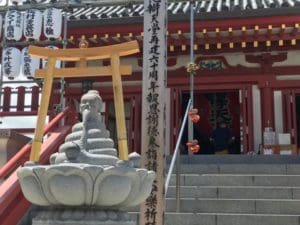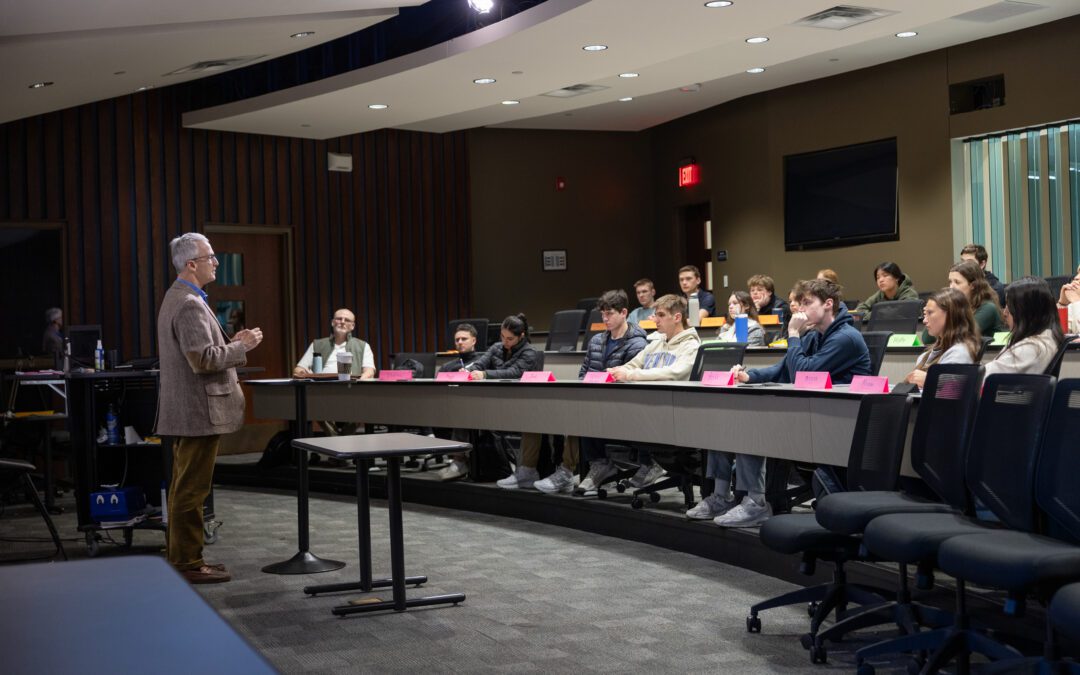Japan – a country without hope.
Yuji Genda, a professor of Labor Economics at the University of Tokyo’s Institute of Social Science, recently published a study called “The International Survey of Life and Hope.” In this study, Genda compared and collected survey responses to questions of life and hope from citizens in the U.S., the U.K., and Japan. Examining the data, he found that only around 7% of the survey responders from the U.S. and the U.K. reported to having “no hope.” Comparatively, nearly 45% of Japanese people reported these feelings.
As few as one percent of Japanese people identify as evangelical Christians. It is a country in desperate need of Christ. And it was here that Oklahoma Wesleyan University senior and Global Studies major Brittany Sanchez had the incredible opportunity to participate in a growing church plant.

A startling percentage of Japanese people report to depression and a lack of hope.
Sanchez has always had an openness to follow God’s call, and she’s done just that, working with Voice of the Martyrs, a number of different church programs, and in overseas mission work. Prior to coming to OKWU, she spent time in Lebanon caring for and ministering to Syrian refugees.
During her junior year at OKWU, some of Sanchez’s friends were involved in doing ministry in Japan and invited her to join them. She agreed, and worked in the Tokyo area with a growing church plant called Hope Alive, under the leadership of Pastor Heath Hubbard. She had the opportunity to serve in the church, out on the street, and even in people’s homes. As she continued to learn more about the Japanese people, Sanchez quickly came to realize that Japanese evangelism comes with its own unique set of challenges.
“The structures of their religion make it easy to talk about [faith] with Japanese people,” she said, “but [it’s] very difficult for them to comprehend the full surrender of who Jesus is, and the idea of salvation.”
“Only around 7% of the survey responders from the U.S. and the U.K. reported to having no hope… nearly 45% of Japanese people reported to these feelings.”
Speak English
In one common ministry strategy, Sanchez would go out into the streets of the city carrying a sign that literally said, “Speak English,” and when people came up to talk to her, she would use it as an opportunity to hear their stories and share the gospel. There were, of course, challenges – Sanchez points to one story in particular when an elderly Japanese gentleman simply couldn’t compute his need for a savior. Moments like these broke her heart.
And if this was the sum of all the ministry in Japan, it truly would be heartbreaking. But Sanchez quickly figured out what many other missionaries had before her: the secrets to effective ministry are relationship and discipleship.
“I went with every intention to learn, and to do whatever it was I felt like God was leading me to do,” she said. “So as I was beginning to pick up the habits of the culture and learn my way around, I was also opening my mind on how to best serve this new community. I was learning to reach out to the people who God needed me to minister to.”
Brittany worked hard to forge these new connections, participating in clubs, tutoring programs, family outreaches, and Bible Studies, through which she was able to have the most impact. Here, she built one-on-one relationships that allowed her to effectively communicate truth and the gospel.

The primary religion in Japan is Shinto, but it’s become mixed with a number of Buddhist beliefs.
Of course, she would be the first to admit that it wasn’t easy. “Building relationships with Japanese people was very hard,” she said. “[But] God gave me this little glimmer of hope, that He was working in and through me, and that I was making an impact.”
After eleven and a half weeks of adventure, Brittany’s time in Japan came to an end. “The experiences I had and being able to witness the growing Church in Japan was incredible, and I am forever thankful,” she said. “I still think of the faces I saw, and the stories I heard when I lay in my bed at night.”
Sanchez points to a willingness to obey as a key to her time in Japan. “God blesses faithfulness” she said.
And the next time God calls, Brittany Sanchez will be ready. “People need Jesus, and it is up to us to tell them.”
“People need Jesus, and it is up to us to tell them.”



